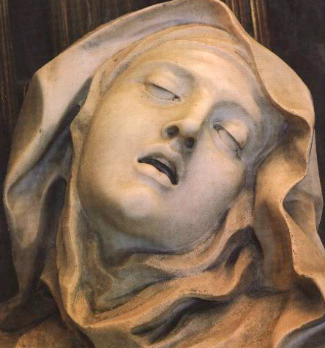“By this we know love, because he laid down his life for us. And we ought to lay down our lives for the brothers.” So we read in the First Letter of John (3:16).
What is love, if we learn it from Jesus? To lay down our life for the ones we love. And even to lay down the life of our beloved – if we follow the example of Jesus’s Father, who laid down the life of his only Son for love of mankind. Love is gift, radical gift, self-gift.
To lay down your life for someone else: is this not all too cruel, and therefore, unrealistic and, if realized, simply inhuman? Yet, even if you do not agree with the hard consequences of such a statement (why should love be self-sacrifice? how could the beloved ever be pleased by the fact that you die for her/him?), it might at least rightly suppose that love is a matter of gift, of gift-giving.
Even ‘selfish’ Eros is a matter of gift-giving. The lover gives himself to the beloved, just as the beloved gives herself to the lover. Is, in such act of love, the ‘self’ given way, abandoned? Indeed, it is. Not in ‘the real,’ but love feels as if it is like this. Eros feels as if it deprives me of my ‘self’. Hurt by the blind arrow, I am no longer the one who I think I am: I am in love, or, to put it more strongly, I am love. I coincide with the desire I feel for my beloved, a desire that has lost its very ‘self’. Just like, after the act of love, I feel pity simply because I feel again, because I feel again my ‘self’, which reminds me that, unfortunately, I have not disappeared into my beloved. That particular, complex feeling, the French erotic tradition calls ‘la petite mort’ (the little death).
Giovanni Lorenzo Bernini, The ecstasy of Santa Teresa of Avila, (detail)
Is this the way man loves God? Surely, the mystical tradition is there to show that Eros is fully present in the Christian tradition. And there, the paradigm of the gift is most explicit. Take for instance Teresa of Avila’s poem entitled Vivo sin vivir en mí (I live without living in myself). In the last stanza, the logic of the gift reaches the lethal acme of its inner paradox:
Teresa dies from not dying: it is a paradoxical way of saying that she suffers because her act of giving herself away has not yet succeeded – because she has not yet definitely disappeared in her beloved God. To lay down your life for the beloved: this is Christian Eros as practiced by so many mystics. Eros, as a positive, wanted privation of the self – as longing for that very privation – is the way humans are to love God.
But is it also the way God loves humans?
At first sight, the answer is yes, as we read in the letter of John: “By this we know love, because he laid down his life for us.” This is what Jesus did – or, what amounts to the same thing, what in Jesus God did.
Vittore Carpaccio, Meditation on the Passion, 1510
This is incarnation. It is God’s kenosis, his very death. Incarnation means that God dies, out of love, for us humans.
But does God ‘die because he does not die’. Does He suffer from not disappearing entirely within the human. Does He know of the pain caused by the fact that, despite His self-abandoning love, He still keeps on existing?
It is not exactly what the tradition tells us, but might it not be the most radical form of incarnation? Then, God should really be human, not because of the dying in the moment of His death, but because of the dying as the condition of His life: then, living, He should ‘die because He is still God’. Just like his human beloved ones die because they realize that, despite their love-experience, they still exist.
This would make the gift-giving between God and man equal and endless. Each of them would keep on giving, without ever succeed in giving himself radically away.



